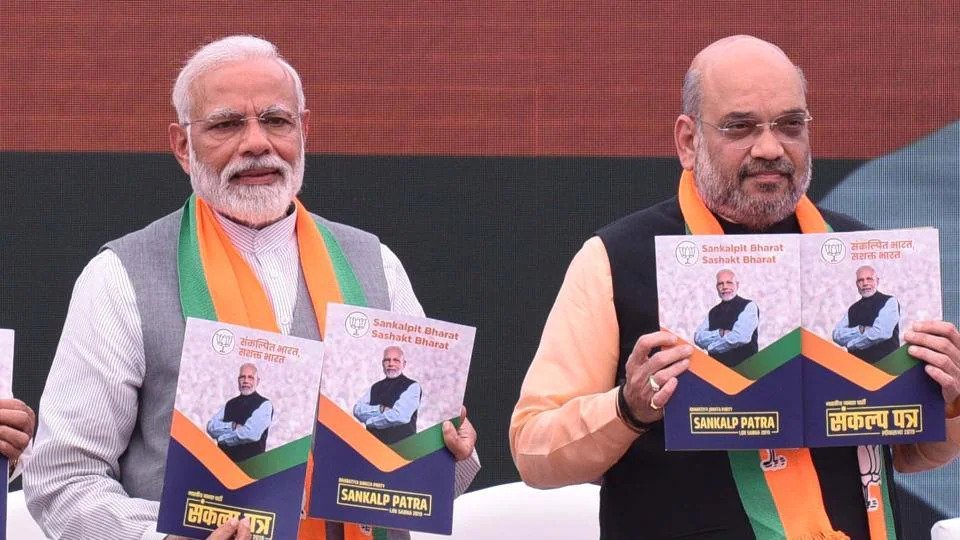
The Union Cabinet on December 15 cleared the decision to raise the legal age of marriage for women from 18 to 21 years, thereby bringing the age of marriage for both men and women at par. The Cabinet’s approval came after a NITI Aayog committee headed by Jaya Jaitly, former president of the Samata Party, suggested raising the marriageable age in its December 2020 report.
Presently, each religion prescribes a different age for marriage. For Hindus, The Hindu Marriage Act, 1955 sets 18 years as the minimum age for the bride and 21 years as the minimum age for the groom. In Islam, the marriage of a minor who has attained puberty is considered valid.
The Special Marriage Act, 1954 and the Prohibition of Child Marriage Act, 2006 also prescribe 18 and 21 years as the minimum age of consent for marriage for women and men, respectively. For the new age of marriage to be implemented, seven personal and marriage laws will need to be amended:
- Muslim Personal Law (Shariat) Application Act
- Indian Christian Marriage Act
- Parsi Marriage and Divorce Act
- Hindu Marriage Act
- Hindu Minority and Guardianship Act
- Foreign Marriage Act
- Special Marriage Act
Once enacted, The Prohibition of Child Marriage (Amendment) Bill, 2021 will apply to all communities and supersede existing marriage and personal laws in India.
Government’s rationale for re-examining the marriage age?
Prime Minister Narendra Modi, during his Independence Day speech last year had made a reference to the proposal. The government has cited 3 key reasons for making changes to the existing laws determining the age of marriage:
- Gender neutrality: Providing equal opportunity to women for pursuing higher education or vocational instruction, seeking employment, and becoming self-dependent - all of which are currently denied to women due to early marriage.
- Women’s health & wellbeing: Saving young women from early pregnancies, malnutrition, and protecting their overall health and mental wellbeing by marrying at the appropriate age. This is also expected to have a positive impact on Infant Mortality and Maternal Mortality Rates.
- Secular equality: Providing equal rights to women from all faiths, whether under Hindu Marriage Act or the Muslim Personal Law, to marry.
What is getting the critics up in arms?
The Opposition raised its concerns over the government rushing through the Bill, which was introduced in Lok Sabha by Smriti Irani, Union Minister for Women and Child Development. As a result, it has been sent to a Parliamentary Standing Committee for further evaluation and making suggestions after taking feedback from various sections of the society.
The critics believe that the benefits cited by the government from changing the marriage age are debatable and conceal its real intentions. As a case in point, the recently released National Family Health Survey (NFHS) revealed that child marriage has come down marginally from 27% in 2015-16 to 23% in 2019-20. As per the Ministry of Statistics & Implementation, 2019, the mean age of marriage in India has increased to 22.1 years. When all signs are pointing to an improvement, they do not see the urgent need to implement this legal measure that violates existing religious and personal laws. Terming the Bill as a retrograde step, AIMIM leader Asaduddin Owaisi said, “At 18 years, a girl can choose prime minister, have a live-in relationship, have sexual relations, but you are denying her the right to marriage”.
It is also mainly the daughters of the poor who are married before 18 to escape poverty. Maternal and infant mortality, and malnutrition cannot be improved by reducing the marriage age. While on one side, the government is cutting down funds on public health, privatizing the health sector, refusing to expand the food security system, not increasing expenditure on health and education, it is passing laws that may make only a small dent in improving women’s overall health and wellbeing. Congress Rajya Sabha MP and senior advocate Abhishek Manu Singhvi echoed this sentiment and said, “Unless a lot of work goes into reform mindsets, all that will end up is criminalizing large chunks of the female population between 18 and 21 years. The measure may not be bad if accompanied by solid, supportive, nutritional, dietary, educational, and employment reforms for women between 18 and 21 years.”
India is a signatory to the resolution adopted by the UN General Assembly in 1989 which recommended 18 years as the minimum age. The reasons given by the government for going against this global consensus do not appear to be convincing and hide its real intentions – that of implementing the Uniform Civil Code.
Uniform Civil Code
BJP has never hidden its desire to implement the Uniform Civil Code that would benefit women across religions by giving them property rights, removing discriminatory clauses in divorce laws, and putting an end to polygamy. This subject found a mention in the party’s manifesto for the General Elections as early as 1998. Thereafter, it has repeatedly used the concept of “gender justice” in each of its manifestos in 2009, 2014, and 2019.

The Prohibition of Child Marriage (Amendment) Bill, 2021 appears to be a logical step towards achieving that objective albeit covertly. It began by first criminalizing triple talaq, an Islamic law that allows a husband to divorce his wife instantly. BJP’s view on UCC was endorsed by Union Defence Minister Rajnath Singh who in a speech in March said, “Whenever we talked of Ram Mandir, people poked fun at us, we fulfilled that promise. We also fulfilled our promise on Article 370 and triple talaq. We will do what we have said about the uniform civil code also.”
RSS, the ideological mentor of BJP, too has openly asked the government to amend laws that permit polygamy - a direct reference to the Muslim Personal Law (Shariat) Application Act, 1937. As far back as 2015, the RSS passed a resolution in its All-India Executive Committee to correct the “demographic imbalance” in India – alluding to the increase in the ratio of Muslims.
“The Modi government has already tweaked the divorce law of Muslims and now it is targeting marriage. Inheritance and adoption may be next on the agenda. This is surely a step-by-step way forward to the uniform civil code,” E.T. Mohammed Basheer, an MP from the Indian Union Muslim League (IUML) said.
TO READ THE FULL ARTICLE

Get full access to the exciting content on The Mirrority by logging in
Support independent journalism
Even the very best of media houses in our country today are yielding to the pressure of click-bait journalism in order to survive. More than ever before, our country needs journalism that is independent, fair and non-pliant to the bureaucracy. Such journalism needs the support of like-minded readers like you to help us survive editorially and financially.
Whether you live in India or India lives inside you, help us continue to produce quality journalism with your contribution.
CONTRIBUTE

